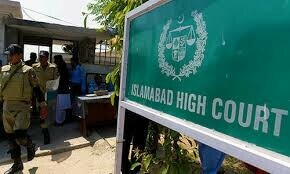ISLAMABAD: The recent disasters were a warning from nature that there is an urgent need to adopt a mechanism to face the unpredictability of climate change.
This was were general view of speakers at the launching ceremony of a book ‘Malevolent Floods of Pakistan 2010-2012’ organised by Sindh Graduate Association (SGA) on Sunday.
The book’s author, Naseer Memon, said floods had been beneficial to mankind for centuries because irrigation and soil fertility depended on them.
“Every flood shows failure of the government because it has failed to device a policy to avoid damages caused by floods,” he said.
Human rights activist Tahira Abdullah said although the subject of floods was very important for Pakistan and its citizens, it had become a political issue which was why people avoided talking about it.
“We have to express our concerns towards floods and device a strategy to control the affects of it. Mr Memon has showed the courage by writing on such a difficult issue,” Ms Abdullah said.
Former member Planning Commission Fazallah Qureshi said the book was a good effort and gave reasons and recommendations for future planning.
Representative of National Disaster Management Authority (NDMA) Idrees Mansoor said it was good to have a valuable document on disaster.
“Mr Memon in his book has discussed the mapping of early warning systems and the role of institutions. It will also help us to plan in a way to avoid such disasters in future,” Mr Mansoor said.
Naseer Memon, who has been working on environment, told Dawn that he was not in favour of building new dams and believed that floods caused disasters because of our own mistakes.
“Most of the people say that if we had dams in 2010, damage because of flood could have been controlled but I believe that the magnitude of the flood was so high that even dams could not have reduce the affect,” he said.
“According to my findings, because of encroachments all over the country natural ways of water have been blocked. We have to remove encroachments and open a way to water,” Mr Memon said.
“Moreover there are issues of human resource in the institutions working to control floods. They do not have the capacity, equipment and advanced warning system to minimise the damages,” he said.
Mr Memon was of the view that disaster management system was also weak and to improve its quality trained and qualified persons should be appointed.










































Dear visitor, the comments section is undergoing an overhaul and will return soon.